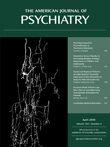To the Editor: We welcome the opportunity to respond to Dr. Levitan’s thoughtful letter regarding our article. He has expressed that our finding that atypical symptoms were elevated among those subjects who could think of no specific cause of their dysphoric episodes (the “nothing” adverse life event) is at odds with previous research showing that atypical symptoms are highly reactive to external conditions. According to DSM-IV, atypical symptoms are mood reactivity (the opposite of our measure of anhedonia), hypersomnia, appetite gain, leaden paralysis (related to our measure of psychomotor retardation), and rejection sensitivity (unmeasured). Contrary to Dr. Levitan’s claim, however, appetite gain, hypersomnia, anhedonia, and psychomotor retardation all vary significantly across adverse life events in both the between- (Figure 2 in the article) and within- (Figure 1 in the article) person samples. This result was maintained in a reanalysis of our data in which we excluded the “nothing” adverse life event, indicating that these five atypical symptoms are indeed sensitive to external conditions. Moreover, the most consistent symptoms for the “nothing” adverse life event (Table 2 in the article) are fatigue and appetite gain, with little (relative to other adverse life events) appetite loss, trouble concentrating, or sadness (“blues”). It should be noted therefore that appetite gain is the only atypical symptom in this cluster. Indeed, the symptom pattern following the “stress” adverse life event was more consistent with atypical depression than the symptom pattern following the “nothing” adverse life event. Thus, our results do not show that atypical symptoms are unresponsive to external conditions.
Dr. Levitan’s second point is that certain adverse life events and certain corresponding symptoms may be less salient than others, leading to a weakening of certain adverse-life-event-symptom relationships and to an under-reporting of some adverse life events. This is a valid critique. Our study design depended on participants’ own attributions of what caused their dysphoric episodes. To the degree that these were incorrect, our results may inaccurately reflect the true adverse-life-event-symptom correspondences. As noted by Dr. Levitan, such misattributions seem more likely to occur for amorphous adverse life events, such as the “nothing” adverse life event, than for clearly delineated events with specific onset times (e.g., deaths, romantic breakups, failures, conflicts, scares). Indeed, the “nothing” adverse life event is probably a mixed bag of causes, including both truly endogenous, unperceivable causes (e.g., vascular dysfunction, bioamine dysregulation) and external causes that are difficult to perceive (e.g., changes in the season, diet). Therefore, in agreement with Dr. Levitan, we feel that it is important to remember that participants’ causal attributions may have sometimes been incorrect and that this is probably especially the case in dysphoric episodes, for which participants could not determine a cause.

